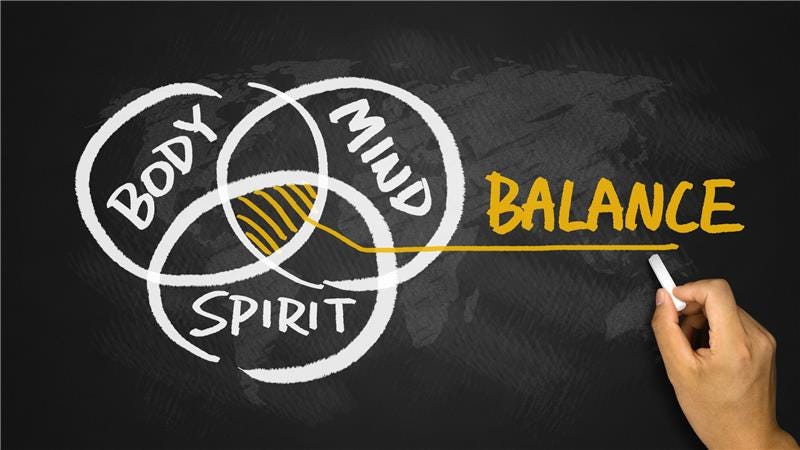
Top Vitamin Supplements for Men: A Comprehensive Overview
Why Vitamins Matter for Men's Health
Vitamins play a crucial role in supporting men's energy levels, brain function, muscle recovery, immunity, and overall vitality. While a well-balanced diet should be the foundation of nutrition, modern lifestyles, stress, and nutrient-depleted soil can lead to deficiencies, making supplementation an essential tool for maintaining optimal health.
Signs You May Need More Vitamins:
- Fatigue or sluggishness despite getting enough sleep may indicate a deficiency in B vitamins or iron.
- Struggling with focus or memory could mean low levels of vitamin B12 and omega-3s.
- A weak immune system may suggest a need for vitamin C and vitamin D.
- Frequent joint discomfort or slow muscle recovery may indicate a deficiency in vitamin D, magnesium, or collagen.
A targeted vitamin strategy can help bridge the gap between dietary intake and the body's specific nutritional needs.
Key Vitamins Every Man Needs
Each vitamin plays a unique role in men's health, from boosting testosterone and muscle recovery to supporting cognitive function and heart health.
Vitamin D: Bone, Testosterone, and Immune Support
Vitamin D is essential for bone strength, muscle function, immune health, and testosterone production. Despite its importance, many men have insufficient levels due to limited sun exposure.
Benefits of Vitamin D:
- Supports bone density and calcium absorption.
- Plays a role in maintaining testosterone levels.
- Contributes to a healthy immune response.
Best Food Sources of Vitamin D:
- Fatty fish (salmon, mackerel, sardines).
- Egg yolks and fortified dairy products.
- Mushrooms exposed to sunlight.
Studies indicate that men with optimal vitamin D levels often have better testosterone levels, which play a key role in energy and muscle maintenance (National Institutes of Health).
Recommended Dosage:
2,000–5,000 IU per day, depending on individual needs and sun exposure levels.
Vitamin B12: Energy and Brain Function
Vitamin B12 is essential for energy production, red blood cell formation, and nervous system function. It plays a vital role in cognitive performance and mental clarity.
Benefits of Vitamin B12:
- Supports brain health and memory function.
- Plays a role in preventing fatigue and weakness.
- Supports the production of red blood cells.
Best Food Sources of Vitamin B12:
- Meat (beef, lamb, and pork).
- Fish (tuna, salmon, and trout).
- Eggs, dairy, and fortified cereals.
Vitamin B12 deficiency is more common in men following plant-based diets since it is primarily found in animal products. Supplementation is often recommended for vegetarians and vegans.
Recommended Dosage:
500–1,000 mcg per day, particularly for those who consume little to no animal-based foods.
Vitamin C: Immune and Antioxidant Support
Vitamin C is a powerful antioxidant that plays a critical role in immune function, collagen synthesis, and overall cellular protection.
Benefits of Vitamin C:
- Supports immune defense by promoting white blood cell activity.
- Plays a role in collagen formation for skin, joints, and connective tissue.
- Helps neutralize oxidative stress caused by environmental toxins.
Best Food Sources of Vitamin C:
- Citrus fruits (oranges, lemons, grapefruits).
- Berries (strawberries, blueberries, blackberries).
- Bell peppers, kiwi, and dark leafy greens.
Research suggests that regular vitamin C intake helps maintain immune strength and may reduce the duration of occasional colds (Frontiers in Immunology).
Recommended Dosage:
500–1,000 mg per day, depending on individual immune and antioxidant needs.
Vitamin A: Vision and Skin Health
Vitamin A is essential for maintaining healthy vision, skin integrity, and immune function. It plays a role in cell growth and development.
Benefits of Vitamin A:
- Supports eye health and night vision.
- Promotes skin cell regeneration and integrity.
- Plays a role in immune function and cellular health.
Best Food Sources of Vitamin A:
- Carrots, sweet potatoes, and pumpkin.
- Leafy greens (spinach, kale, collard greens).
- Egg yolks and liver.
Studies show that vitamin A plays a critical role in protecting eye health and reducing age-related vision concerns (Journal of Clinical Medicine).
Recommended Dosage:
900 mcg per day for adult men, with variations based on dietary intake.
Vitamin E: Heart and Cellular Protection
Vitamin E is a fat-soluble antioxidant that helps protect cells from oxidative stress and supports cardiovascular health.
Benefits of Vitamin E:
- Helps maintain healthy skin and cell membranes.
- Supports heart function and circulation.
- Acts as an antioxidant to combat free radicals.
Best Food Sources of Vitamin E:
- Almonds, sunflower seeds, and hazelnuts.
- Avocados, olive oil, and spinach.
- Wheat germ and whole grains.
Studies suggest that vitamin E plays a role in supporting heart health by helping to maintain normal oxidative stress levels (Nutrients Journal).
Recommended Dosage:
15 mg per day, with variations depending on dietary fat intake.
Vitamin K2: Bone and Cardiovascular Health
Vitamin K2 plays a crucial role in directing calcium to the bones and away from arteries, making it essential for bone density and cardiovascular function.
Benefits of Vitamin K2:
- Supports bone health by helping calcium integrate into the skeletal system.
- Plays a role in maintaining arterial flexibility.
- Works synergistically with vitamin D to promote calcium balance.
Best Food Sources of Vitamin K2:
- Fermented foods (natto, sauerkraut, kefir).
- Grass-fed dairy products and egg yolks.
- Chicken liver and organ meats.
Research indicates that vitamin K2 helps maintain cardiovascular health by preventing arterial calcification (Journal of Clinical Nutrition).
Recommended Dosage:
100–200 mcg per day, particularly in combination with vitamin D.
Minerals That Complement Vitamin Intake
In addition to vitamins, several key minerals support men’s health by promoting energy production, muscle function, and cognitive well-being.
Zinc
Zinc plays a critical role in testosterone production, immune function, and wound healing.
Best Sources:
- Oysters, beef, and pumpkin seeds.
- Chickpeas and lentils.
Magnesium
Magnesium supports muscle relaxation, nerve function, and cardiovascular health.
Best Sources:
- Dark leafy greens, nuts, and seeds.
- Avocados and whole grains.
Iron
Iron is essential for oxygen transport and red blood cell formation.
Best Sources:
- Red meat, spinach, and lentils.
- Fortified cereals and shellfish.
Best Food Sources for Essential Vitamins
For men looking to optimize their vitamin intake naturally, these nutrient-dense foods provide a solid foundation:
Animal-Based Sources:
- Salmon and fatty fish (rich in vitamin D and omega-3s).
- Egg yolks (contain vitamin A, B12, and K2).
- Beef liver (one of the most nutrient-dense foods, high in vitamins A, B12, and iron).
Plant-Based Sources:
- Leafy greens (spinach, kale, collards – high in vitamins A, C, and K).
- Nuts and seeds (almonds, sunflower seeds, flaxseeds – provide vitamin E, magnesium, and zinc).
- Legumes (lentils, chickpeas, black beans – good sources of iron and B vitamins).
Dairy and Fermented Foods:
- Yogurt and kefir (contain probiotics, calcium, and vitamin K2).
- Cheese (source of calcium, vitamin K2, and healthy fats).
A well-balanced diet rich in whole foods is the best way to obtain essential vitamins. However, supplements can fill nutritional gaps when needed.
Choosing the Right Vitamin Supplement
With so many supplements on the market, selecting the right one requires careful consideration. Here are key factors to evaluate:
Quality Matters
- Look for third-party tested supplements to ensure purity and potency.
- Opt for non-GMO, organic, or whole-food-based vitamins when possible.
- Avoid artificial fillers, synthetic additives, and unnecessary preservatives.
Dosage and Absorption
- Check for bioavailable forms (e.g., methylcobalamin for B12, magnesium glycinate for magnesium).
- Fat-soluble vitamins (A, D, E, K) should be taken with meals containing healthy fats for better absorption.
- Water-soluble vitamins (C and B-complex) are best taken with water on an empty stomach.
Personalized Needs
- Active individuals may need additional B vitamins, magnesium, and protein-based support.
- Older men may benefit from extra vitamin D, K2, and omega-3s for bone and heart health.
- Vegetarians and vegans should consider B12, iron, and omega-3 (from algae sources).
Frequently Asked Questions (FAQs)
What is the most important vitamin for men?
Vitamin D is one of the most essential vitamins for men, as it plays a role in bone health, testosterone levels, and immune function. However, B12, magnesium, and omega-3s are also highly important for overall health.
Can men get all their vitamins from food?
While a nutrient-dense diet provides many essential vitamins, modern food production methods, soil depletion, and busy lifestyles may lead to gaps. Supplements can help fill those gaps when dietary intake is insufficient.
Do men need different vitamins than women?
Yes, men and women have different nutritional needs. Men generally require more zinc, vitamin D, and magnesium for muscle and testosterone support, while women often need more iron and calcium due to hormonal changes.
Are multivitamins enough for men’s health?
Multivitamins can be a good foundation, but they may not provide optimal doses of key nutrients like omega-3s, vitamin D, or magnesium. A well-balanced diet and targeted supplementation are often the best approach.
When is the best time to take vitamins?
Fat-soluble vitamins (A, D, E, K) should be taken with meals containing healthy fats. Water-soluble vitamins (B-complex, C) are best taken with water, preferably in the morning for sustained energy throughout the day.
Final Thoughts on Men’s Vitamin Supplements
Ensuring adequate vitamin intake is essential for long-term health, performance, and vitality. While whole foods should always be the primary source of nutrients, targeted supplementation can help fill dietary gaps and support optimal function.
Key Takeaways:
- Vitamin D, B12, and omega-3s are among the most critical vitamins for men.
- Whole, nutrient-dense foods should be prioritized, but supplements can provide additional support.
- Quality matters—choose third-party tested, bioavailable vitamins for better absorption.
- Personalized supplementation based on lifestyle, age, and diet is the most effective approach.
By incorporating a nutrient-rich diet with the right supplements, men can maintain energy, strength, and overall well-being for years to come.









